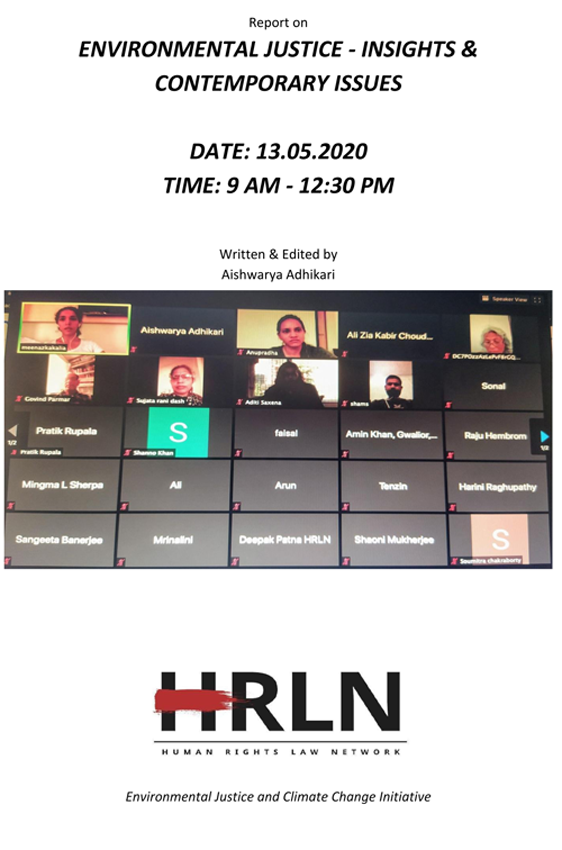
Environmental Justice: Insights & Contemporary Issues
In the wake of Covid 19, a group of researchers and lawyers from SLIC began the process of organising a series of workshops over webinars, to begin the collective conversation around emergent issues as well as to collate all the individual work done by states. The main objective of organising these webinars was to facilitate learning and sharing of experiences of lawyers/social activists involved in litigation/relief work during Covid-19 lockdown and develop strategies for future work.
The third in the series of webinars was a detailed discussion surrounding Environmental Justice and contemporary issues relating to the same. Through its Environmental Justice Initiative, SLIC uses the judicial system to fight environmental degradation that primarily affects the lives and livelihood of the poor and vulnerable groups and to address the ensuing human rights violations. EJI firmly believes that the right to a clean environment is a basic human right for all, and that access to natural resources is the right of communities, such as tribal, who are primarily dependent on them.
SLIC has been working on environmental justice through litigation, consultations, and campaigns to make environmental protection more sensitive to human well-being, for the effective enforcement of environmental rights, and to provide legal support to affected communities. SLIC also aims to equip communities to take part in environmental decision-making for effective enforcement of environmental rights. One of the platforms used by the organisation to highlight various environment and related human rights violations is the Independent People’s Tribunal. The IPT was formed in 1993 to conduct fair and credible investigation on matters concerning environmental and human rights violations and to provide communities, and people’s movements a platform to seek redressed and policy change.
In the past, SLIC has worked on landmark environmental cases in state High Courts, NGT as well as the Supreme Court on tribal rights, silicosis and banning of asbestos in India, ban on use of certain pesticides, compliance with bio-medical wastes management, closure of brick kilns in agricultural areas, implementation of rainwater harvesting, compensation for children affected due to groundwater contamination, restoring the Dalit community’s right of use to a public pond, protection of forests and wetlands, banning use of polythene and plastics in the Andaman Islands, and the rehabilitation of people displaced due to dams.
This particular webinar was intended to be an informal training/capacity building through the sharing of cases done by several of our units in the field of environmental law.
The sessions were divided based on the geographical landscapes and the unique issue related to these landscapes – coastal areas, forest areas and urban areas.
The meeting was organised on 13 May 2020, from 9 AM to 12:30 PM.